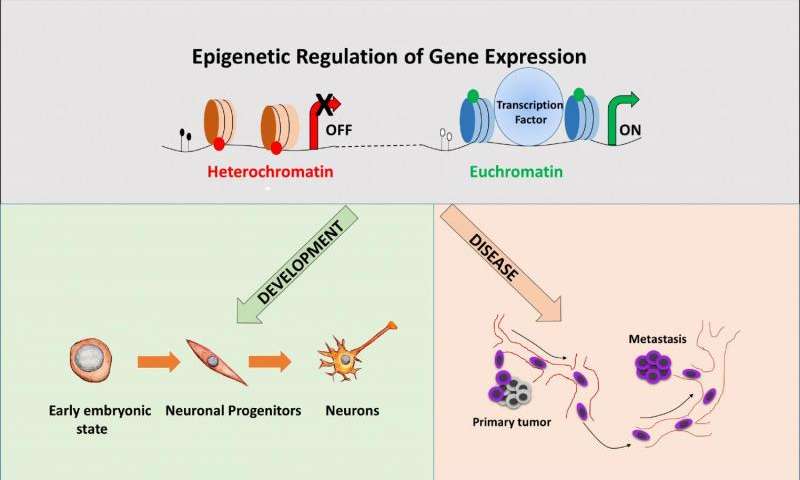Vijay Tiwari of the Institute of Molecular Biology receives Wilhelm Sander-Stiftung Award 2015

Dr. Vijay Tiwari of the Institute of Molecular Biology (IMB) in Mainz is awarded the "Förderpreis der Wilhelm Sander-Stiftung" in celebration of the foundation's 40th anniversary. The prize recognizes the contribution of promising young biomedical researchers in Germany, and will be awarded at the Wilhelm Sander Foundation's 40th anniversary celebrations on 12 June in Munich, in the presence of Nobel laureate Professor Harald zur Hausen. The award includes financial support for further research and scientific purposes.
Dr. Vijay Tiwari is a Group Leader at the Institute of Molecular Biology at Johannes Gutenberg University Mainz, Germany, where he and his team are researching the cellular processes underlying development and cancer.
Ordinarily, cells in the body have a clear identity, e.g., a cell in your skin belongs in the skin and is different to a nerve cell in your brain. In metastatic cancers, tumorous cells have lost this tissue identity, and are able to move to other parts of the body, where they can form new tumours.
The opposite process happens in development, where cells become gradually more specialized as an embryo develops. For example, neuronal cells only start to form a few days after fertilization of a human embryo.
Dr. Vijay Tiwari is investigating the mechanisms that drive a cell to change from a regular to a metastatic cell, or from a general embryonic cell to a more specialized neuronal type in development. His group is using state-of-the-art computational and molecular biology tools together with cutting-edge epigenetics and genomics techniques to investigate these processes.
Epigenetic mechanisms involve changes to the genome that control which genes are turned on or off, but that are not encoded in the DNA sequence itself. These changes can be triggered by environmental factors, and can be inherited from one generation to the next. This is a very hot topic at the moment because being able to change how genes are turned on and off without having to interfere with the basic composition of DNA could lead to new treatments for cancer and a range of other diseases.
The Wilhelm Sander Foundation has already recognized the value of Dr. Vijay Tiwari's research by providing his group with funding of approximately EUR 300,000 to date. This award and the EUR 20,000 prize money associated with it for use in further research and scientific purposes reinforce the foundation's support for Tiwari's research.
Provided by Universitaet Mainz